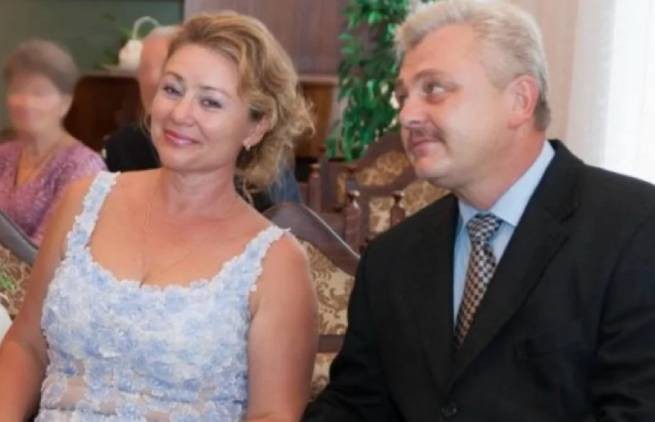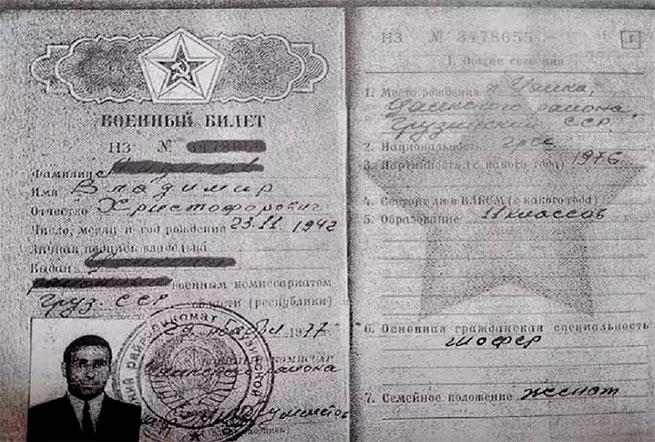Pontic expatriates from the countries of the former Soviet Union, who in the early 1990s fulfilled their dream of settling in their homeland, are in danger of losing their Greek identity.
Almost thirty years later (!) the Greek authorities discovered that the stamps affixed to their Soviet passports certifying that they were returned citizens were fake. And they initiate the process of depriving them of their citizenship and Greek identity. Some of them even face deportation and deprivation of any citizenship, because they never had the citizenship of the countries where they used to live.
81-year-old Vladimir, supported by his sister-in-law, leaves the courtroom of the Third Judicial District of Thessaloniki, the newspaper writes. voria.gr. A few days ago the court recognized him innocent in using a fake and obtaining a fake certificate. It all started when he applied for benefits four years ago. After an investigation, it turned out that the stamp on his re-visa, issued in 1993, had been forged. But he didn’t know about it. He thought that at that time he applied to the consulate in Moscow, but some scammers, taking advantage of the fact that he could not return at that time, took the documents themselves. The consequence of this was that the then decision to grant him Greek citizenship was cancelled. And since then he has been a stranger in his own country.
The elderly man presented to the court a number of documents, mainly from the authorities of the USSR, some of them even before the 1917 revolution. From them it followed that his roots are Greek, starting from his great-grandmother. Of course, the most important document was his military card of the Soviet army, in which he wrote that his nationality – Greek.
This was enough to justify him by confirming that he was a Greek. However, according to the administration, this is not enough. “Is it reasonable to deprive him of his citizenship, even if it has been proven that he is Greek, for something for which he himself is not responsible? What does it mean that the decision does not oblige the administration?” asked the lawyer for 81-year-old Athanasios Kamas. It was he who demanded the annulment of the decision by which the decentralized administration deprived the elderly person of citizenship and still has not returned him. The case for annulment of the decision is currently under consideration by the administrative courts. “The decision of the criminal court must be upheld. It was established that he did not commit any illegal actions in order to obtain Greek citizenship. This is evidenced by the documents that we submitted about the origin of this person,” Kamas said in an interview with Voria.gr.
In his statement, he said that “the Pontic Greeks are under threat of deportation.” The same is true of dozens of other cases of expatriates from the former Soviet Union who arrived in Greece during the refugee wave of the early 1990s, in most cases because their parents wanted to return home. They lost the citizenship granted to them upon arrival in the country between 1992 and 1995. “We are all Pontic. My mother’s name was Efremis. We grew up with the dream of returning home. And all these years later we are told that we are alien aliens,” says Elena Tatevosyan, President of the expatriates of Alexandroupolis and Vice President of the Federation of Expatriates of East Macedonia – Thrace, who lost her Greek citizenship a few years ago.
In fact, the decision to deport her is already under consideration. The Greek administrative authorities ruled that the birth certificate submitted by her and the marriage certificate of her parents in 1995 were not confirmed by the authorities of Georgia, where she was born and grew up with her parents. And they canceled her citizenship.
“This is a mechanism, they want to harm the Pontic expatriates. For twenty years I have been talking to politicians, interfering in solving problems, and one fine moment they called me and asked me to visit a decentralized office. They held my passport and said they would confiscate it. I was shocked “. The president of the returnees could not believe that she herself had suffered the same while she was dealing with similar problems of other expatriate members of the association.
Criminal Court, Plenary Court of Thessaloniki consisting of three members of the court, since she acquired citizenship in Thessaloniki, pleaded not guilty. She presented to the court documents contested by the Greek administration, which she requested and received again from the Georgian authorities. Where it was confirmed that she is Greek. However, nothing changed with the deprivation of her citizenship, so she turned to the administrative courts.
Her complaint is compelling:“We came to Greece because it was the dream of our parents and grandparents to return home. We left Thessaloniki and settled in Alexandroupoli to fortify the border areas. Now they tell me that I am not Greek, this is unheard of.”
Tatevosyan has two diplomas from Moscow, mostly in political science, and decided to live in Greece with other relatives of her Pontic family who lived in Tsalka, Georgia. She began the fight to solve these problems through legislation. According to her, “Already several people who lost their citizenship are no longer in Greece. They have been deported.”
From the editor. If you have similar problems, send your stories to the editors by e-mail Email address is being protected from spambots. Javascript must be enabled in your browser to view the address. Perhaps their publication will help find a solution to this problem.







More Stories
How teacher Ivan Kanidi, at the cost of his life, saved children at the Beslan school
How Greeks abroad can vote – step by step
A 93-year-old Pontian who was arrested in 2019 for selling knitted slippers has died.